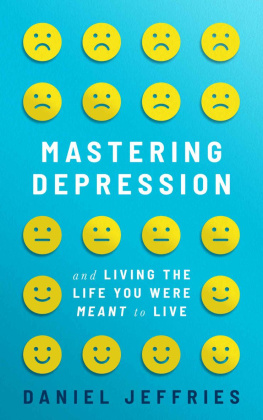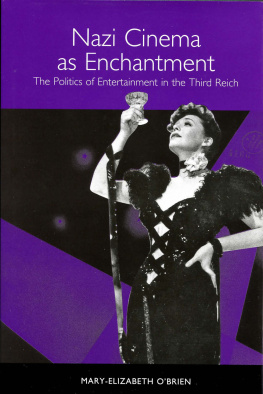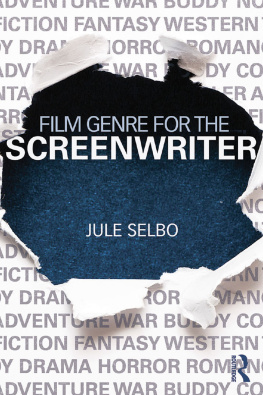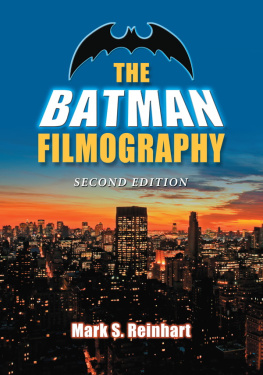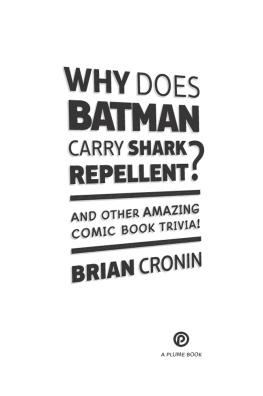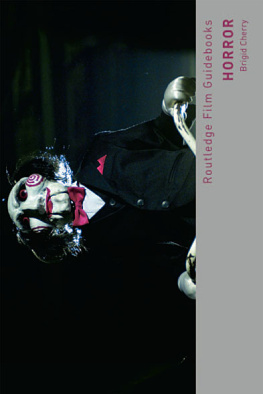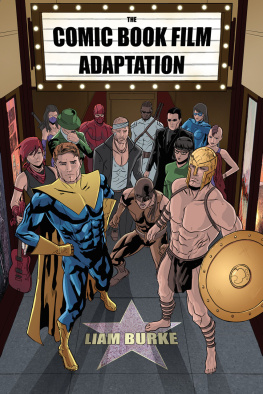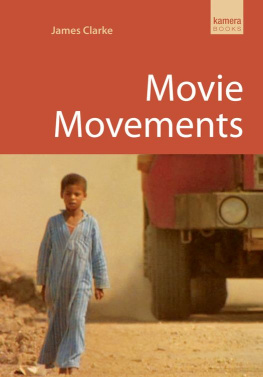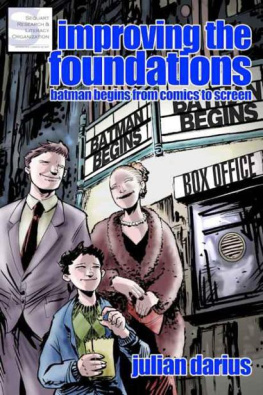Jeffries - Comic Book Film Style
Here you can read online Jeffries - Comic Book Film Style full text of the book (entire story) in english for free. Download pdf and epub, get meaning, cover and reviews about this ebook. year: 2017, publisher: University of Texas Press, genre: Computer. Description of the work, (preface) as well as reviews are available. Best literature library LitArk.com created for fans of good reading and offers a wide selection of genres:
Romance novel
Science fiction
Adventure
Detective
Science
History
Home and family
Prose
Art
Politics
Computer
Non-fiction
Religion
Business
Children
Humor
Choose a favorite category and find really read worthwhile books. Enjoy immersion in the world of imagination, feel the emotions of the characters or learn something new for yourself, make an fascinating discovery.

Comic Book Film Style: summary, description and annotation
We offer to read an annotation, description, summary or preface (depends on what the author of the book "Comic Book Film Style" wrote himself). If you haven't found the necessary information about the book — write in the comments, we will try to find it.
Emphasizing films such as Batman: The Movie that have received little scholarly attention, this book presents a new and more coherent definition of the comic book film as a stylistic approach rather than a genre.
Jeffries: author's other books
Who wrote Comic Book Film Style? Find out the surname, the name of the author of the book and a list of all author's works by series.
Comic Book Film Style — read online for free the complete book (whole text) full work
Below is the text of the book, divided by pages. System saving the place of the last page read, allows you to conveniently read the book "Comic Book Film Style" online for free, without having to search again every time where you left off. Put a bookmark, and you can go to the page where you finished reading at any time.
Font size:
Interval:
Bookmark:
COMIC BOOK FILM STYLE
CINEMA AT 24 PANELS PER SECOND
DRU JEFFRIES

UNIVERSITY OF TEXAS PRESS
AUSTIN
Copyright 2017 by the University of Texas Press
All rights reserved
First edition, 2017
Requests for permission to reproduce material from this work should be sent to:
Permissions
University of Texas Press
P.O. Box 7819
Austin, TX 78713-7819
http://utpress.utexas.edu/index.php/rp-form
LIBRARY OF CONGRESS CATALOGING-IN-PUBLICATION DATA
Names: Jeffries, Dru, author.
Title: Comic book film style : cinema at 24 panels per second / Dru Jeffries.
Description: First edition. | Austin : University of Texas Press, 2017. | Includes bibliographical references and index.
Identifiers: LCCN 2017000691
ISBN 978-1-4773-1325-1 (cloth : alk. paper)
ISBN 978-1-4773-1450-0 (pbk. : alk. paper)
ISBN 978-1-4773-1326-8 (library e-book)
ISBN 978-1-4773-1327-5 (non-library e-book)
Subjects: LCSH: Comic books, strips, etc.History and criticism. | Motion pictures and comic books. | Motion picturesProduction and direction. | Film adaptationsHistory and criticism. | Motion picture industryHistory and criticism.
Classification: LCC PN6725 .J43 2017 | DDC 741.5/9dc23
LC record available at https://lccn.loc.gov/2017000691
doi:10.7560/313251
CONTENTS
ACKNOWLEDGMENTS
Ones first book doesnt materialize easily or painlessly; thankfully, the process of researching, writing, and revising Comic Book Film Style was made as smooth as possible thanks to the remarkable support, wisdom, and friendship I received throughout from my family, friends, and colleagues. First I must express my profound gratitude to Martin Lefebvre, whose mentorship and friendship have been truly invaluable from the very outset of this project, throughout my doctoral studies, and beyond. I also want to thank Charlie Keil for his encouragement, counsel, and seemingly endless reservoir of warmth over the years; you make academia feel like the supportive and truly collegial environment that it could and should be. Id also like to recognize Marc Steinberg, Luca Caminati, Darren Wershler, and Will Brooker, whose instructive comments on previous versions of this project helped give shape to the book that it ultimately became. Rob King and Philippa Gates supervised earlier research projects that led to Comic Book Film Style and deserve credit for planting seeds and leading me in productive directions. Id also like to acknowledge the rest of my colleagues at Concordia University, the University of Toronto, and Wilfrid Laurier University, as well as the Social Sciences and Humanities Research Council, who saw fit to fund my research multiple times over the years. Special thanks, finally, to Jim Burr, Lindsay Starr, Lynne Chapman, Sarah McGavick, Nancy Warrington, everyone at the University of Texas Press, and my two anonymous readers, whose suggestions improved my manuscript immensely. The blame for any errors that may remain in this book should be directed entirely at the author.
There are obviously many more people whose impact on this book cannot be as directly quantified as those cited above but who are equally worthy of my thanks. Jeff Gross talked things through with me every morning on his walk to workand still does (sometimes we even talk about my research). Tony Fong read drafts and offered moral support even when his own work commitments were overwhelming already. Since 2011, Ive also cohosted a podcast on the subject of comic book films, which has allowed me to ramble long enough to land on some of the ideas that appear in this book. My cohosts all deserve credit for putting up with me (and I hope I didnt inadvertently steal any of their ideas): Dave Babbitt, James Hrivnak, Andrew Kannegiesser, and Chris Martin. Speaking of putting up with me, nobody has done so to such a tremendous extent as Giselle Kraus, whose love and profound empathy make me better with every day. To paraphrase the great Sam Cooke: Youre the apple of my eye / Youre cherry pie / Youre coconut cake and vegan ice cream.
Portions of have been published previously as Comics at 300 Frames per Second: Zack Snyders 300 and the Figural Translation of Comics to Film in Quarterly Review of Film and Video 31, no. 3 (2014). My thanks to the journals editors for permission to include some of that material here.
This book is dedicated with all my love to my parents, Pat and Rick, and to my sisters, Amanda and Emily. I love the shit out of you.
INTRODUCTION
For The Warriors 2005 home video release, director Walter Hill produced a new version of the 1979 cult film, dubbed the Ultimate Directors Cut. Hill claimed that this new version better reflected his original intentions for the film, which was conceived as a comic book rock n roll version of the Xenophon story [Anabasis].structure of a comic book page. The cumulative suggestion of these stylistic additions is clear: whereas The Warriors 79 simply presents a cinematic representation of a live-action fictional storyworld, The Warriors 05 presents a comic book storyworld brought to life through live-action cinema. The relevant difference between these two versions lies not in their narrative content but rather in how that content is mediatedor remediated, as the case may befor the viewer.
This is merely one example of the much broader phenomenon that will be explored at length in this book, which I dub comic book film style. This designation refers to the results of an intermedial relationship between comics and film, whereby the latter medium appropriates and transforms certain of the formal attributes unique to the former as a means of stylization. While this phenomenon has inarguably been most visible in Hollywood cinema since the 1990s, a distinctly comic bookinfluenced film style can be found in various examples dating back to the mid-1960s at least, and adaptations of popular newspaper comic strips are among the earliest fiction films of the silent era. This is not to imply that all comic book adaptations necessarily have an interest in comics medium-specific formal characteristics. Indeed, one common way that critics measure the success of a comic book film adaptation is the degree to which it renounces any residual trace of the comic book medium. One need look no further than reviews of one of the most successful comic book adaptations of all time, Christopher Nolans The Dark Knight (2008), which was lauded by critics for the specifically cinematic qualities that allowed it to transcend its comic book origins.
If its so undesirable, why devote a book to understanding comic book film style? To answer the question, one must understand why it is derided in the first place. Certainly one factor that contributes to the generally low opinion of comic book film style is the prevailing wisdom that films adapted from other media ought to replace the stylistic choices made in the texts original medium with cinematic equivalents: by this logic, a comics dialogue, presented via text contained in speech balloons, should be replaced in a film adaptation by recorded dialogue, presented via synchronized sound. At a press junket for Marvels The Avengers (2012), the films writer/director, Joss Whedon, echoed this logic, stating that the key to making a good comic In other words, a good adaptation will disavow those elements of the original that would seem alien in a cinematic context, favoring the conventions of cinema rather than comics wherever they come into conflict. Comic book film style thereby goes against the grain of good adaptation practice by retaining, if not privileging, the aesthetics of the original medium at the expense of cinematic convention.
Next pageFont size:
Interval:
Bookmark:
Similar books «Comic Book Film Style»
Look at similar books to Comic Book Film Style. We have selected literature similar in name and meaning in the hope of providing readers with more options to find new, interesting, not yet read works.
Discussion, reviews of the book Comic Book Film Style and just readers' own opinions. Leave your comments, write what you think about the work, its meaning or the main characters. Specify what exactly you liked and what you didn't like, and why you think so.


